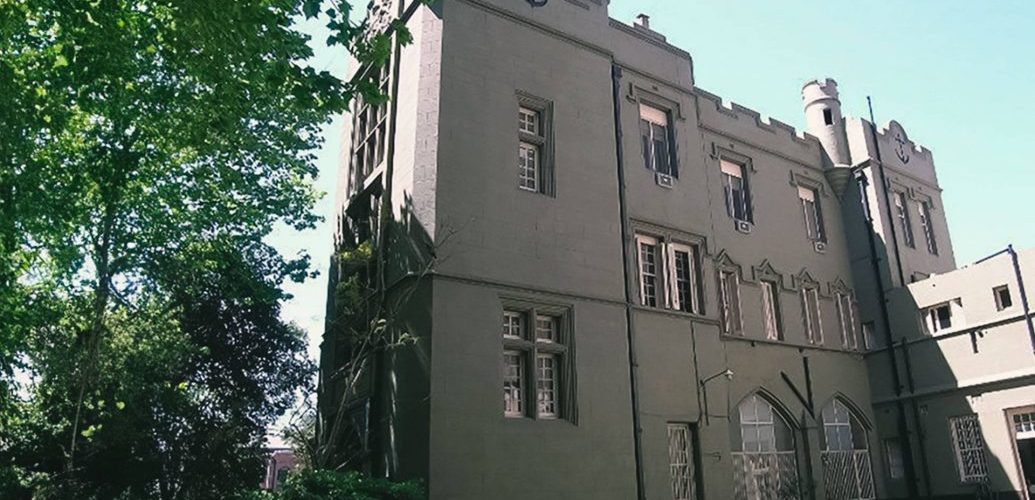Buenos Aires, Argentina, December 28, 2023, the Center for Latin American Migration Studies (CEMLA), located in Buenos Aires, Argentina, celebrated 38 years of work focused on migrants.
CEMLA is directed by Father Ildo Griz, CS, and is one of seven centers of the Congregation of the Missionaries of Saint Charles – Scalabrinians, specialized in the study of past and present migratory movements in Latin American countries.
Since its founding, it has always been interested in the social, psychological, legal and pastoral impact that migration has had on its protagonists and the demographic, socioeconomic and political impact on the societies of origin and destination: “CEMLA aims to stimulate and produce knowledge in different discussion spaces, promoting activities that contribute to improving the understanding of migration processes at the local, national and international level,” Father Ildo highlights.
After a period of pause due to constant changes in direction, CEMLA resumes its advisory activities to public and private, national and international entities, providing information to researchers, strengthening the capacities of young students in the area of migration and offering information about centers and researchers, as well as their programs in Argentina and the world, facilitating the exchange of scientific documentation.
Currently, CEMLA is in a restructuring and relaunch phase, planned in four main areas of activity:
1 – Library: The Center has a library specialized in internal and international migrations with more than six thousand national and foreign titles, which cover different historical periods and address the issue of migrations in different plans and approaches, such as culture, human rights, immigration policies and regulations, among others. It also has a microfilmed archive of documentation related to the history of European migrations in South America and an audiovisual archive of ancient and recent migrations in Argentina and Chile. The restructuring process includes the adaptation of physical spaces and the systematization and cataloging of existing material.
2- Database: Currently, CEMLA’s database has more than six million pieces of information. This area of work is one of the most relevant carried out by the Study Center due to its scope and significance. This task has been carried out since 1985, which consists of preserving records of migrants who enter Argentina by sea. This database is fully available for consultation at the headquarters of the Study Center, and they intend to continue offering this service. To this end, it is planned to adapt specific spaces for users who consult the database.
3- Training and Dissemination: CEMLA organizes, promotes and collaborates in holding seminars, congresses, conferences, artistic exhibitions and other activities that contribute to the training, dissemination and exchange of information on issues related to migration, with a rights-based approach. For several years, it had an advisory committee whose objective was to provide permanent advice to achieve its objectives. This area of CEMLA aims to renew and expand to continue monitoring the daily reality of people and communities that experience the effects of migration in coordination with other civil society organizations, including ecclesiastical and migrant organizations, State agencies and International Organizations.
4- Publications: CEMLA intends to republish the journal Latin American Migratory Studies every six months. This academic journal specializes in migration issues, covering sociological, anthropological, demographic, theological and historical aspects. For its publication, it is intended to once again have an editorial committee made up of professionals from different areas of study. Since its founding, CEMLA has published a dozen books, some in co-publication with other institutions of national and international renown. Its latest research projects and material publications aim to raise awareness in society about the challenges related to the world of migrations.
Currently, its library is frequented by people dedicated to the study of immigration issues, most of them university students and graduate students looking for material for their theses. Library users are not only Argentine nationals, but also from other neighboring countries, including some European countries. The library is also visited and consulted by secondary and primary school students, journalists who need material for a report or the general public interested in learning about the history of migration in Argentina. Furthermore, CEMLA’s database has become, in recent months, the reference par excellence when it comes to verifying the entry of foreigners into Argentina. These queries are mainly used to apply for European citizenship but also for genealogical purposes. In addition, academics from Argentina and researchers from other parts of the world visit CEMLA.
For more information about the Center, visit: http://www.cemla.com/


